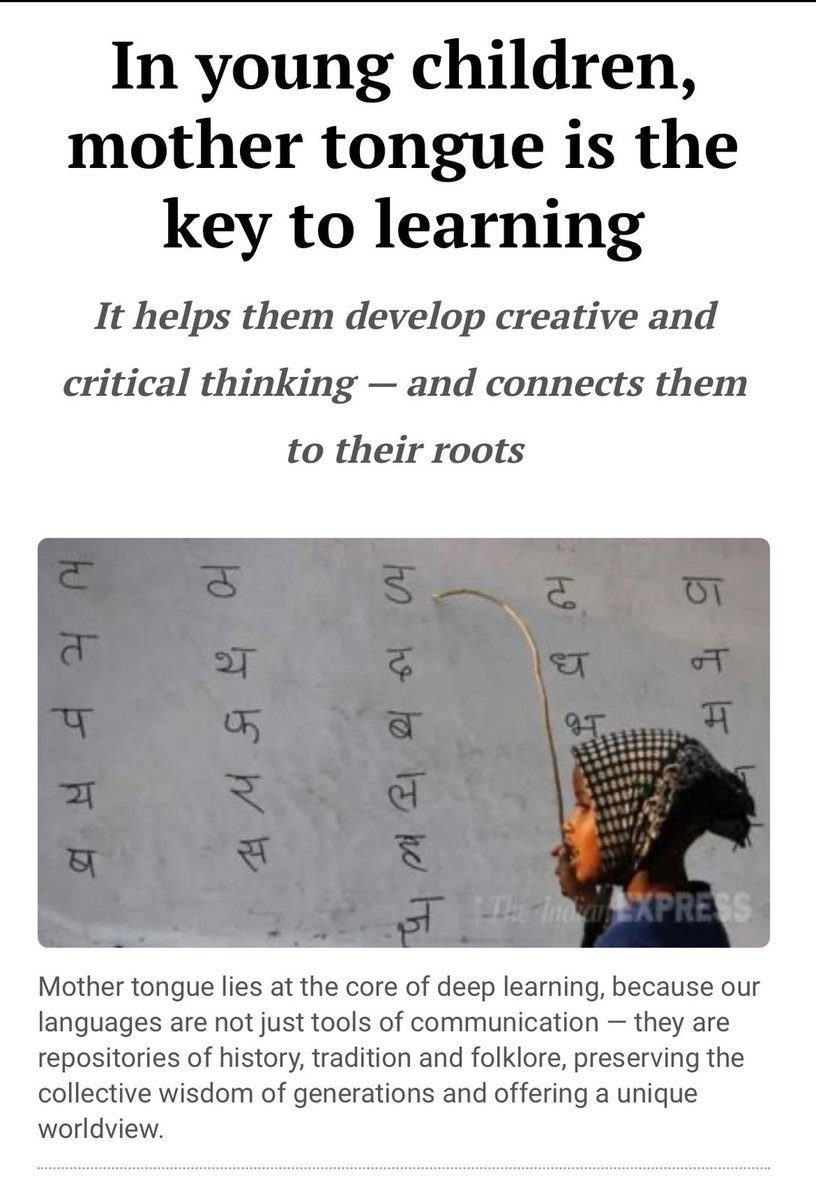NEP 2020 Promotes Mother Tongue Learning for Better Education

NEP 2020 Promotes Mother Tongue Learning for Better Education. The National Education Policy (NEP) 2020 is a groundbreaking reform. It promotes the use of the mother tongue in teaching young children. Prime Minister Narendra Modi highlighted this vision, emphasizing innovative initiatives and resources that NEP 2020 supports. The policy focuses on fostering creativity, deep learning, and preserving India’s rich cultural roots.
NEP 2020 Promotes Mother Tongue Learning for Better Education
Why NEP 2020 Supports Mother Tongue Education
- Foundation of Deep Learning: Teaching in the mother tongue helps children grasp concepts better. They relate more to their language and culture.
- Fostering Creativity: Learning becomes smoother and encourages creativity when children understand subjects in their native language.
- Cultural Connection: Mother tongue education helps preserve cultural identity and linguistic heritage.
- Improved Cognitive Skills: Research shows that children learn faster when taught in their native language during the early years.
The NEP 2020 highlights that India’s linguistic diversity is its strength. By integrating local languages into early education, the policy ensures inclusivity and better understanding.
Prime Minister’s Remarks on NEP 2020
Prime Minister Narendra Modi stressed the importance of NEP 2020. Responding to Union Education Minister Dharmendra Pradhan’s post, he said, “Teaching young children in their mother tongue leads to deep learning, fosters creativity, and preserves cultural roots.”
He pointed out that NEP 2020 uses innovative initiatives and resources to fulfill this vision. The Prime Minister encouraged citizens to understand the benefits of early education in the mother tongue.
Union Minister Dharmendra Pradhan’s Insights
Union Education Minister Shri Dharmendra Pradhan has been vocal about the benefits of mother tongue education. He highlighted several key points:
- Easier Learning Process: When children learn in their mother tongue, they build a stronger knowledge foundation.
- Inclusive Learning: Children from rural and regional backgrounds can learn without language barriers.
- Global Examples: Many developed nations prioritize early education in their local languages. India is aligning with global best practices.
- Skill Development: Understanding core concepts in native languages helps children acquire life-long skills.
Innovative Initiatives Under NEP 2020
NEP 2020 emphasizes a flexible and inclusive education system. Some key initiatives under the policy include:
- Introduction of Local Language Resources: Schools are encouraged to use materials, books, and digital resources in regional languages.
- Teacher Training Programs: Teachers are being trained to effectively teach in multiple languages.
- Bilingual Education: In many states, a bilingual approach is being introduced. Children learn both in their mother tongue and in English.
- Focus on Primary Education: The policy prioritizes the foundational learning stage. Teaching in the mother tongue during this period builds stronger literacy and numeracy skills.
Benefits of Teaching in the Mother Tongue
NEP 2020’s focus on mother tongue education brings several benefits:
- Better Academic Performance: Children perform better academically when taught in their mother tongue.
- Improved Communication Skills: Native language teaching improves speaking and writing skills.
- Preservation of Local Languages: NEP 2020 aims to preserve the diversity of India’s languages.
- Bridge Language Barriers: It removes the difficulty of learning new subjects in an unfamiliar language.
- Stronger Community Connection: Teaching in the mother tongue strengthens bonds within communities.
How NEP 2020 Aligns With Global Standards
The NEP 2020’s vision aligns with global practices. Countries like Japan, Germany, and France teach children in their native languages. This enhances learning outcomes and preserves cultural values.
India, with its diverse linguistic landscape, can set an example for the world. The policy’s innovative initiatives ensure equal access to quality education for every child.
Challenges in Implementing Mother Tongue Education
While NEP 2020 promotes mother tongue learning, certain challenges exist:
- Lack of Resources: Schools may face a shortage of textbooks and teaching materials in regional languages.
- Teacher Training: Teachers need specialized training to teach in local languages.
- Parental Perception: Many parents still prefer English-medium education for better career prospects.
- Regional Variations: India’s linguistic diversity requires state-wise implementation strategies.
However, the government is addressing these issues through innovative solutions and initiatives.
Government’s Efforts to Promote Mother Tongue Learning
The government is taking proactive steps to overcome challenges and ensure successful implementation:
- Development of Learning Materials: Textbooks, e-resources, and audio-visual tools are being created in local languages.
- Collaboration with States: States are working closely with the Centre to implement NEP 2020 effectively.
- Digital Platforms: Initiatives like DIKSHA provide multilingual digital resources for teachers and students.
- Awareness Programs: Campaigns are being run to highlight the benefits of mother tongue education among parents and teachers.
Role of Teachers in NEP 2020
Teachers play a crucial role in implementing NEP 2020’s vision. They are being trained to:
- Teach core subjects in local languages.
- Use interactive and creative methods for effective teaching.
- Create an inclusive classroom environment for children of all linguistic backgrounds.
The policy emphasizes the need for continuous teacher training and development.
A Step Towards Better Learning Outcomes
NEP 2020 marks a transformative change in India’s education system. By promoting mother tongue education, the policy aims to:
- Ensure deep conceptual understanding.
- Improve student learning outcomes.
- Preserve India’s linguistic and cultural diversity.
Prime Minister Modi and Union Minister Dharmendra Pradhan have reiterated that NEP 2020 will strengthen India’s education system.
Conclusion: Mother Tongue for a Brighter Future
NEP 2020 is a forward-looking policy. It promotes teaching in the mother tongue, ensuring better learning, creativity, and cultural preservation. The Prime Minister’s emphasis on this vision highlights its importance in building a strong educational foundation for young children.
With innovative initiatives and resources, the policy aligns with global standards while celebrating India’s rich linguistic diversity. NEP 2020 is not just about education; it is about empowering the future generations of India.



